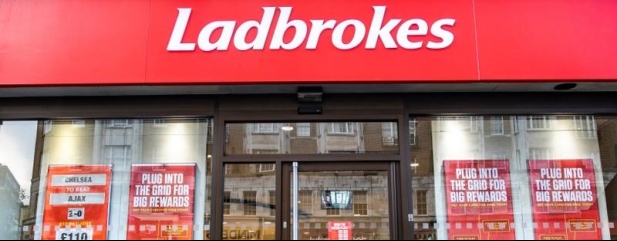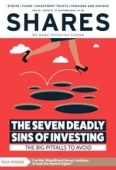Archived article
Please note that tax, investment, pension and ISA rules can change and the information and any views contained in this article may now be inaccurate.
Gambling shares slump on concerns of treasury tax raid

Investors have been braced for changes to online gambling regulations aimed at leveling the playing field between land-based operators and online, but very few were expecting the UK Treasury to raid the whole sector to help the government fund its budget deficit.
Share prices fell across the board on Monday (14 Oct) following a report by The Guardian that Rachel Reeves was considering proposals to double taxes levied on parts of the sector to raise between £900 million and £3 billion.
The industry is likely to push back, warning of the economic damage to the sector which claims to support 110,000 jobs.
‘The betting industry will argue higher taxes could lead to an increase in illegal black-market gambling and ultimately firms may well pass on any extra costs they incur to punters, potentially doing more harm’, commented AJ Bell investment director Russ Mould.
The scale of the share-price falls suggests investors do not believe tax increases will be anything like the scale the report suggests.
Analysts at Berenberg have crunched the numbers and believe the most likely scenario is an increase in remote gaming duty to 25% from 21% and a 10% increase in remote betting duty to 25%.
Assuming the changes come in from 1 January 2025, the implied impact to EPS (earnings per share) would be most negative for 888-owner Evoke (EVOK) whose earnings could halve.
Ladbrokes owner Entain (ENT) could see a 19% drop in earnings, while Paddy Power operator Flutter (FLTR) is the relative winner with a projected 12% hit to earnings.
The most draconian scenarios would push the UK businesses of Entain and Evoke into losses while Flutter’s UK profit could halve, reducing the government’s tax take, say the analysts.
The timeline for implementing the changes is unclear but it is worth noting adjustments to gambling taxes can be made via secondary legislation, avoiding the need to get a new law passed by parliament.
This would make any changes at the 30 October budget more likely to be implemented, according to Berenberg.
Paul Leyland, partner at gambling consultancy Regulus Partners, argues the industry can afford to pay higher taxes, but to work effectively they can only be genuine ‘tweaks’, raising possibly another £300 million, and certainly ‘not anywhere close’ to one billion pounds.
Leyland concludes: ‘A damaging and self-defeating tax raid cannot be ruled out, especially given the Labour donor connection, but there are reasons why the Treasury has not been so reckless before and we doubt they will be so reckless this time.’
Disclaimer: Financial services company AJ Bell referenced in the article owns Shares magazine. The author (Martin Gamble) and the editor (Ian Conway) own shares in AJ Bell.
Important information:
These articles are provided by Shares magazine which is published by AJ Bell Media, a part of AJ Bell. Shares is not written by AJ Bell.
Shares is provided for your general information and use and is not a personal recommendation to invest. It is not intended to be relied upon by you in making or not making any investment decisions. The investments referred to in these articles will not be suitable for all investors. If in doubt please seek appropriate independent financial advice.
Investors acting on the information in these articles do so at their own risk and AJ Bell Media and its staff do not accept liability for losses suffered by investors as a result of their investment decisions.
 magazine
magazine








